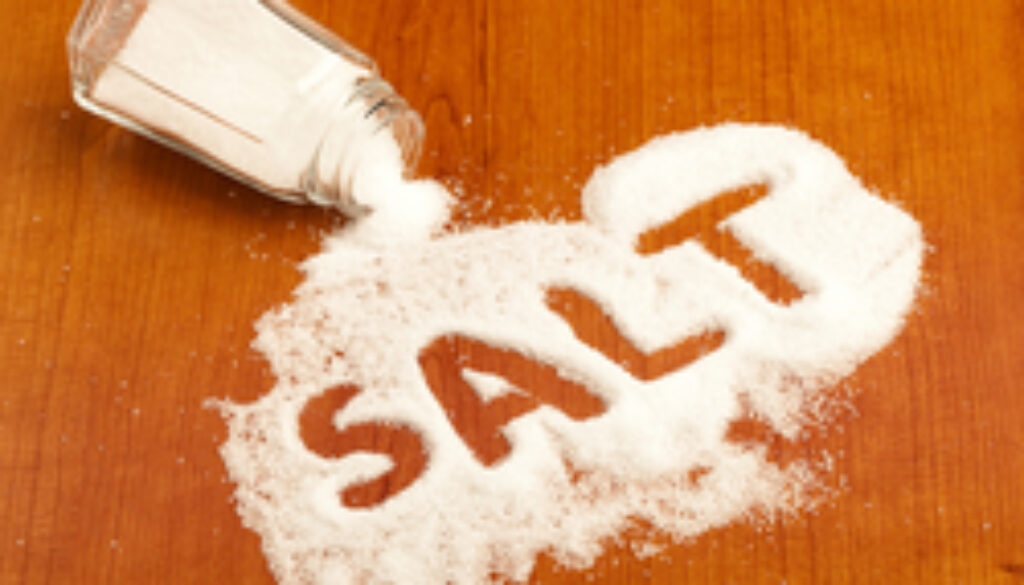Tis the Season for Seasoning? Some Healthier Alternatives to Salt
You can deck the halls with healthier habits this holiday season. By saying no to the salt shaker, you’re doing your body a favor. What you may not realize is that there are several sneaky ways salt oozes into our diets.
In fact, 75 percent of the sodium Americans consume doesn’t come from the salt shaker, but from packaged foods. Sodium is also hidden in canned soups, cured meats and cold cuts.
How much salt is too much?
When you think of holiday indulgences, sugary sweets are often the first treats that come to mind. However, you may be surprised to realize that Americans consume more than twice the American Heart Association’s recommended daily allowance of salt! The association recommends 1,500 milligrams a day, while most adults have 3,400 milligrams of sodium.
Too much salt in your diet leads to several health problems
Salt causes fluid retention and can place stress on your kidneys, leading to other complications. Some of these health problems include:
- Stroke
- High blood pressure
- Osteoporosis
- Kidney stones
- Kidney disease
Too much sodium can even take a toll on your appearance, causing puffiness, bloating and weight gain.
How to find the hidden salt in your foods
If you want to stop the excess sodium, it’s vital to become an expert at reading nutrition labels—particularly if you purchase a lot of packaged foods. In addition to looking for the word “sodium” on the label, keep an eye out for its chemical symbol, “Na,” which means sodium compounds are present.
To counteract the negative effects of sodium, choose foods that are high in potassium, like bananas.
Healthier alternatives to sodium
You don’t have to give up the flavorful combinations you crave just because you’re cutting back on sodium. Try these healthier alternatives:
- To spice up lean ground meats, try tomatoes or cranberry sauce.
- Basil is perfect for lamb, stews, soups and fish.
- Almond extract is a complement to puddings and fruits.
- Curry powder is great with lamb, veal, chicken, fish and tomato soup.
- Dill can accompany just about anything, including fish sauce, macaroni, lean beef, lamb, chicken and a wide variety of vegetables.
- Try a dash of ginger with chicken or fruits.
- Lemon juice is an old favorite for fish, poultry, lean meat and salads.
- Take a cue from the famous song and use parsley, sage, rosemary and thyme for your lean meats.
Remember, it’s great to use garlic and onion, but avoid their high-sodium “cousins,” garlic salt and onion salt.
Tips for lowering your sodium intake
Every time you enter a grocery store, you’re overwhelmed with an incredible array of choices. By making a few simple changes in your diet, you can make great strides toward cutting back on salt. The National Kidney Foundation offers these tips:
- Use fresh cuts of meat. While all meat contains sodium, fresh cuts have much less than processed pieces like bacon or ham.
- Be sure that frozen vegetables do not contain added seasoning. Fresh fruits and vegetables—along with canned and frozen fruits—are lower in sodium.
- Don’t let your taste buds fool you—even if something doesn’t taste salty, it may still be loaded with sodium. (Cottage cheese is a perfect example.) If you’re not sure whether or not a favorite food has hidden sodium, please schedule an appointment with our dietitian, Nicole Matala.
- Did you know you can “re-train” your taste buds? Once you get used to eating food with lower quantities of salt, it’s actually difficult to go back to your “old” ways of eating.
Ask your doctor for help
If you have heart disease, your doctor has probably already placed you on a low-sodium diet. The American Heart Association offers this handy sodium tracker that you can print out and keep on hand to record how much sodium you consume. Be sure to share this information with your doctor.
At Raleigh Medical Group, we’ve helped hundreds of patients successfully lower their blood pressure and start the journey to a healthier lifestyle. This holiday, give yourself the gift of health. Don’t wait for New Year’s Day to make resolutions about being healthier. Not sure where to start? We’re glad to be a member of your health care team, and we’re happy to answer any questions you may have. Schedule an appointment to learn how we can start you on your journey to a healthier lifestyle.




